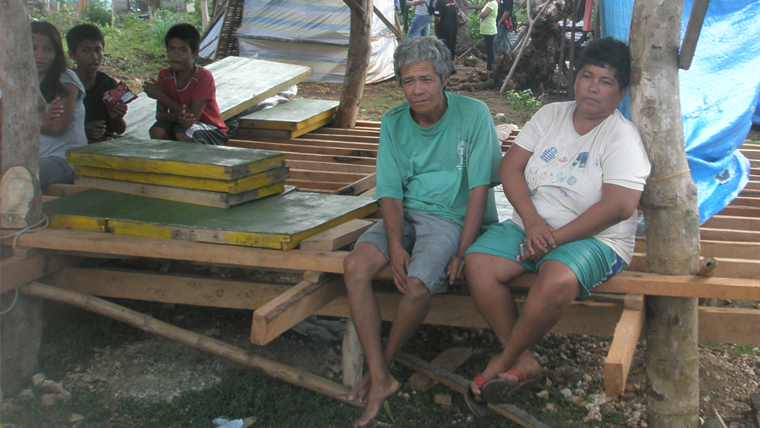How World Vision Works In Emergencies

By Mark Bulpitt, Head of Humanitarian & Resilience Team, World Vision UK
If you were given £40 today, what would you spend it on?
World Vision, as part of its response to typhoon Haiyan, is giving cash unconditionally to some of those most suffering from the devastation.
Giving cash doesn’t immediately make sense: it could be spent on anything; could be wasted away frivolously; could be used to buy... well just stuff. But why would you do that if you and your children were hungry and got wet when it rained because your house had no roof, or walls?
Survivors shouldn’t be passive recipients
Unconditional cash transfers have emerged over the last decade as a viable way of delivering humanitarian assistance in specific situations.
World Vision carries out a careful, market-based assessment before deciding to do this type of work. The markets have to be functioning to spend the cash, which in turn also helps kick start the economy. It is only given to the most vulnerable, those living on roughly less than £1 a day, those who need it most.
Cash transfers are often used to purchase food. Consequently, less money has to be used transporting food into and out of warehouses for delivery as food aid.
Survivors of disasters shouldn’t be passive recipients of aid. They know what they want, have the right to choose and cash transfers help deliver this with dignity and empowerment.
Rodita
Rodita stood outside her house as I talked with her. Well, it was a just a frame of a house, a wooden frame. Typhoon Haiyan had destroyed her and her husband’s house three months ago in the North of Cebu Island, along with most of her community’s homes.
This was a new frame, not the old one. That had been totally destroyed by a coconut tree that fell on top of it as the wind had ripped the house apart. Rodita told me how she and her family feared they would all die in the midst of the strongest storm to ever have made landfall.
Thankfully Rodita’s family weren’t in the house at the time, they had evacuated to a nearby, stronger, building. But her goats and chickens had been and they were all killed.
This was Rodita’s family livelihood, her source of income, her source of food. So she had been left with little opportunities after the storm passed through.
Rodita had used her £40 for one month to buy food for her family and buy the wood to rebuild the frame of her house. Rodita had chosen to feed her family and rebuild their house, bringing hope and the start of a new beginning as the timber frame of her new house started to rise.
Destroying livelihoods
Shenara sells bananas for a living in her village in the northern hills of the island of Cebu. Her husband makes boat propellers and transports them to the market on the coast. When Typhoon Haiyan ripped through their village 3 months ago, destroying their house, it also destroyed the banana trees and blocked the road to the shipping market.
The trees will not recover and Shenara has lost that source of income. The roads are clear now but the demand from the shipping market is weak as the buyers have less cash as their livelihoods also recover slowly.
Coconut trees make up a significant source of income for villagers in the area affected by the typhoon. One man we talked to near Tacloban told us how all his 2 hectares of trees had been destroyed.
He’s been growing them for 29 years and they were destroyed in 3 hours as the winds pummelled across this area. He also grows rice but not in sufficient quantities to bring in enough cash to feed his wife and children.
It will take about 7 years for the coconut trees to re-grow.
Finding alternatives
Livelihoods, together with shelter, are two of the most important areas to focus on to support the survivors of Typhoon Haiyan.
Livelihoods are so interconnected and dependent on various sectors within it such as transport, materials and skills. This inter-dependency can create problems, but also opportunities.
There is now a large need for timber to construct house frames and the fallen coconut trees provide that source of material. Carpentry, roofing and masonry, to rebuild houses, are essential skills to enable the widespread reconstruction necessary and are significantly increasing in demand.
World Vision is preparing to work with nationally recognised trainers to provide these skills to those who have lost their regular source of income after the Typhoon. The provision of seeds and tools alongside training on how to farm crops in between the fallen coconut trees helps assure food on the table and possibly some extra income as well, while coconut plantations recover.
Recovery from disasters of this magnitude takes time, but World Vision has been in the Philippines for more than 60 years and will remain well into the future. These are complex issues, but that has never daunted us before and won’t now. We’re here for the long haul and we will see these islands and their people thrive again.
